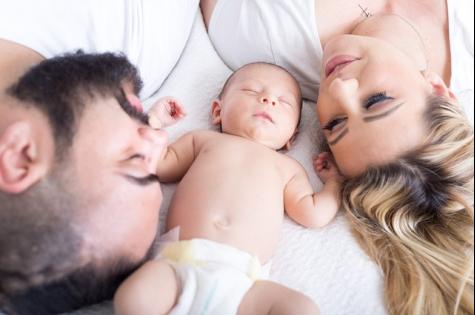Are you pregnant? Liz Wilkes, midwife and Philips Avent Ambassador, answers the most asked questions of parents-to-be.
Will you be my midwife (when I am having my baby)?
Most women assume the midwife they meet in the hospital antenatal clinic or the obstetrician’s rooms will be the person that they have caring for them in labour. In fact, for many women there is little opportunity to meet the midwife providing them labour and birth care. The way to have this option is to seek a midwifery continuity of care model, where the midwife provides care from early in the pregnancy for labour and until your baby is six weeks old. The option is available at Midwifery Group Practice (MGP) in the public sector and as Private Practice Midwives with visiting access in the private sector.
Does labour really hurt? How bad does it hurt?
Labour is hard work and the contractions cause ‘pain’, but it needs to be put into the context that it is not pain that signifies something is wrong, like the majority of pain we feel. Midwives who are experts in physiological birth know that most of the time women can absolutely manage the pain. Where the woman cannot manage, it generally signals that something is not 100% right. For example, the woman is being induced or the baby is in an unusual position or the mum may be scared. Midwives work with women to manage their labour.
Is breastfeeding really hard?
Short answer is, yes, but not for all women and so it can be a little unpredictable. However, even though it can be difficult for some, most women with the knowledge, support and perseverance will come through it. Getting yourself set up for breastfeeding is an essential component of the initial adjustment to breastfeeding, such as having a space for regular feeding. It’s also really important to invest in trusted brands such as Philips Avent whom I’ve trusted for a number of years. Their breast pumps allow mothers to express at home, at work or on the go, keeping stock of their milk to feed bub when needed, and in addition, their bottle sterilisers can help feeding and busy mothers to ensure that their bottles are clean - providing one less thing for mums to think about.
How much weight will I put on?
There’s no simple answer to this question unfortunately! A number of things such as your nutrition and what level of activity you do, coupled with what your weight was prior to pregnancy can have an impact. Most women of an average Body Mass Index will be advised that between 11.5kg - 16 kg is the recommended weight gain. Women who have a lower BMI prior to pregnancy will be advised to gain more weight and those who have a BMI of 26 or above will be advised to gain less.
How much damage does having a natural birth do?
Many women do not realise that having a vaginal birth does not necessarily equate to ‘damage’. Women are designed to have babies and for women who do have some trauma in birth, it is generally limited to grazes, bruising and a few stitches.
Most women recover quickly and use ice and Panadol for the mild pain relief needed. For those who experience significant trauma, it is often following an episiotomy, which needs to be performed if baby is distressed, or from forceps or caesarean sections. These take a longer period to recover from and may need higher levels of pain relief.
Will having a baby make me lose control of my bladder?
Trouble with your bladder, such as incontinence, is linked to being pregnant rather than giving birth. By the time you are in your 40’s, when most of these problems are evident, the rate of incontinence is equal for women who have caesareans as those that have a vaginal birth.
--








 Agree (0)
Agree (0) Disagree (
Disagree (









__small.png)










